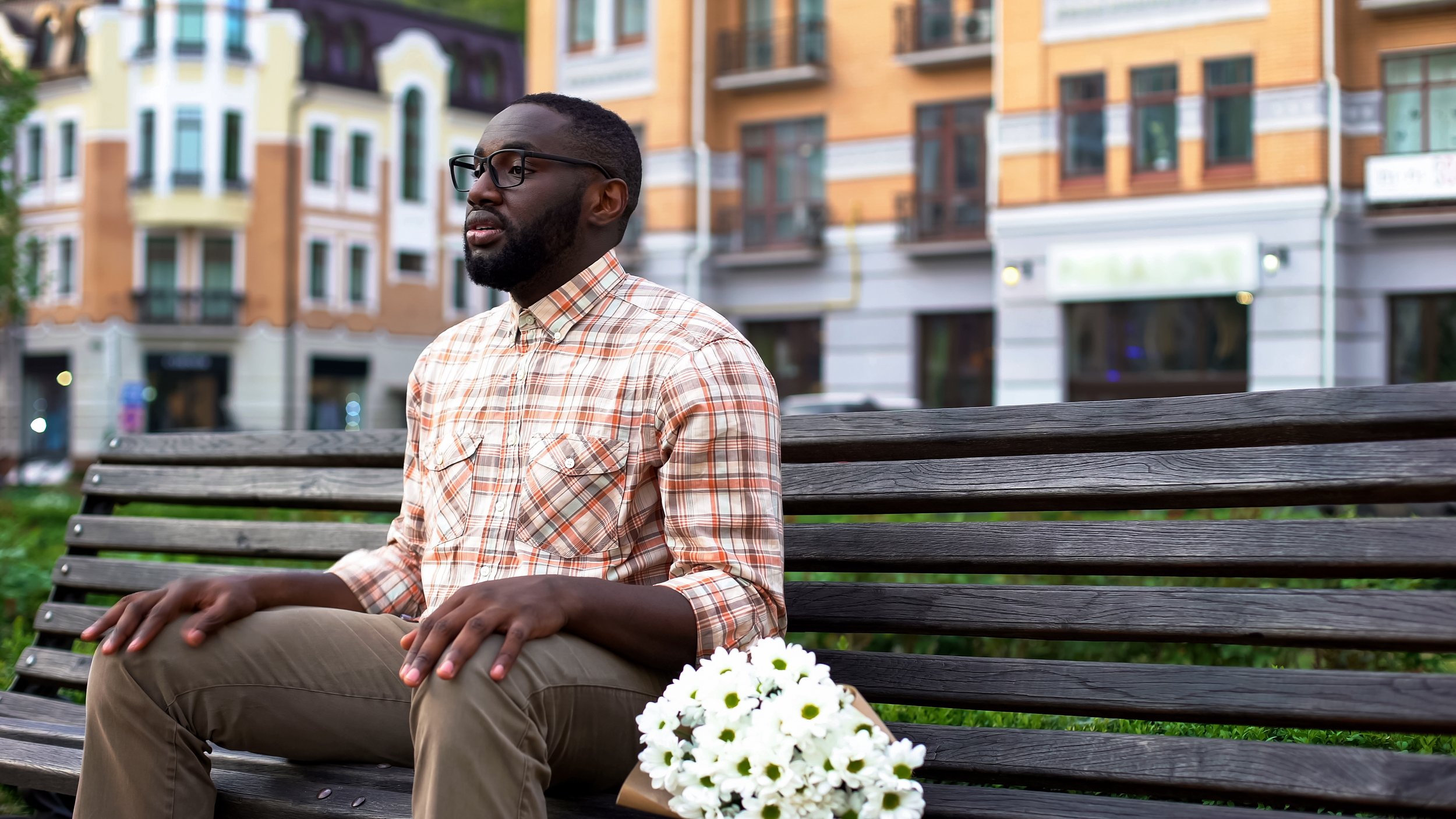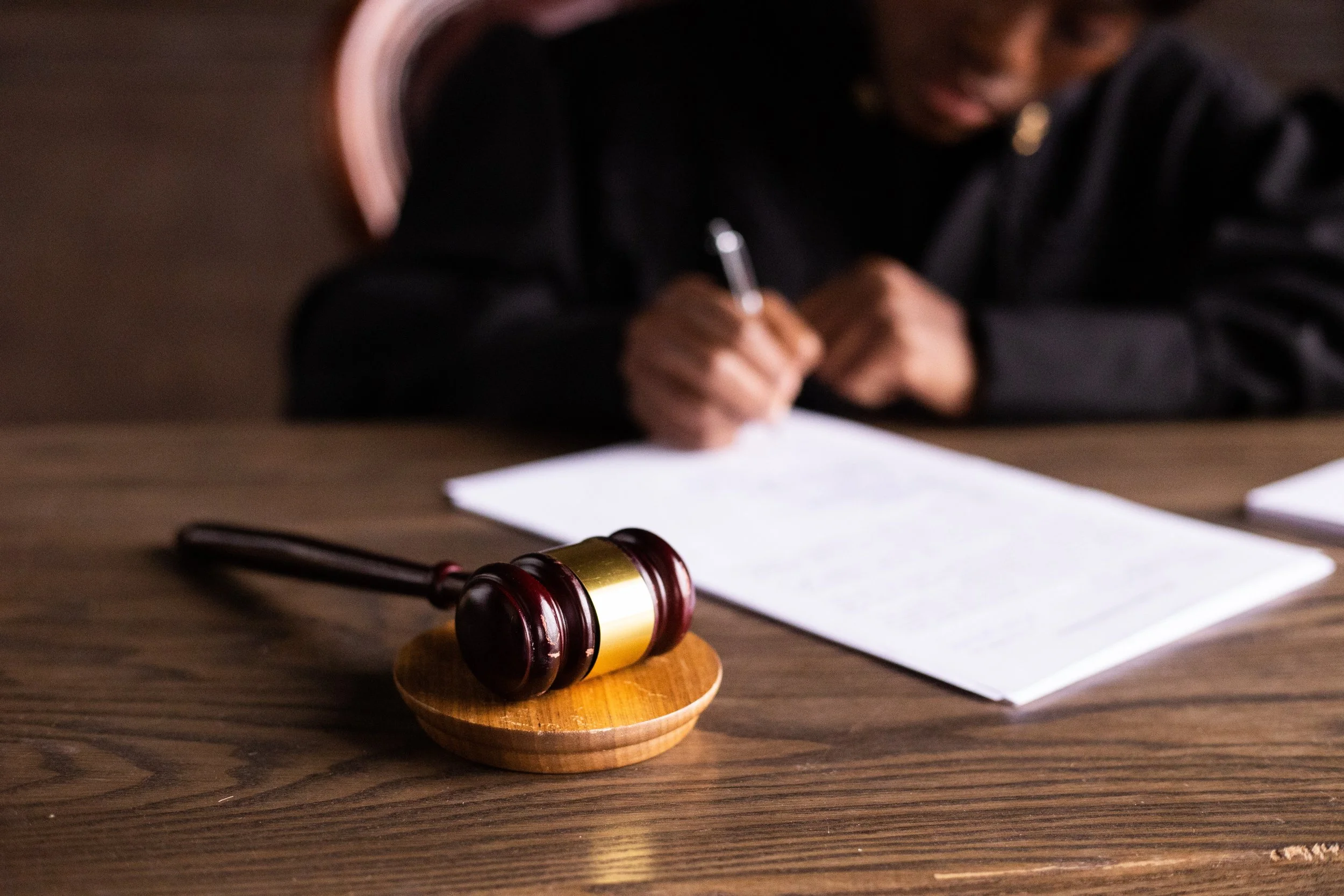When Gay Marriage Goes Left: LGBTQ+ Couples Face Shame, Stress Amid Divorce

Walking down the aisle at his grand 2015 wedding, Nathaniel Holley had plenty of reason to feel proud: The Morehouse College graduate had secured both a successful career as a Washington DC-area paralegal, and the love of his life. Holley and his partner marked the occasion with a splashy $50,000 ceremony, complete with 125 guests to witness it all.
Their split, finalized just four years later, was a much quieter affair.
Finances had become a sore spot. The men argued, often. Soon, Holley felt forced to choose between the relationship and his sanity. He moved out on New Year’s Day 2019.
“I didn’t have any more fight left in me,” says Holley, 35. “I just realized that wasn’t the life I wanted anymore.”
For years, legal marriage has been exalted in the LGBTQ+ community, held up as an ultimate mark of social acceptance and stability. Yet while many consider same-sex marriage the ultimate fairy tale ending for LGBTQ+ couples, reality has proven otherwise: Less than a decade after the landmark Obergefell v. Hodges ruling secured marriage equality for millions of LGBTQ+ men and women across the nation, their divorce rates have neared those of heterosexual couples. Among lesbians, in particular, some studies suggest rates may be even higher.
“I’ve had to fight for just being accepted and respected in my family. There’s pressure to make it work just because I’m gay and I got married.”
- Nathaniel Holley
Experts say LGBTQ+ marriages fall prey to the same pitfalls—finances, cheating, growing apart—that impact their straight counterparts, as well as a very special one: A culture that some argue too often emphasizes the social and political value of legal marriage over healthy relationships. People like Holley—surrounded by so much support when he wed—describe a type of community squeeze to prove that gay marriages can be successful, and a heavy burden when a union fails.
“I’ve had to fight for just being accepted and respected in my family,” Holley says. “There’s pressure to make it work just because I’m gay and I got married.”
At the same time, experts say while there’s no shortage of information and support for LGBTQ+ people looking to get married, many find themselves in the dark when it comes to navigating the end of that marriage. They’re often unfamiliar with laws surrounding things like property, debt, and child custody, and what protections even exist within a same-sex marriage, says Atlanta lawyer John DiNatale, with Kitchens New Cleghorn. The result: For some men and women, the end of the marriage they fought so hard to get can have devastating consequences.
“They finally were able to get married and then the marriage ends for whatever reason,” he says. "And they’re almost left out in a lurch.”
“Nobody Tells You About the Sleepless Nights”
For 42-year-old E’Tonya Carter, the journey from the first date to wedded bliss with her now ex-wife happened at breakneck speed. The pair met on the dating app Hinge in December. Carter immediately felt safe with her new love interest, a 35-year-old masculine-presenting woman who lived just minutes from the Charlotte, NC home she shared with her young daughter.
When the topic turned to marriage just a week after meeting, the normally cautious Carter didn’t back away. They married in February.
“Nothing felt wrong about our interaction, everything felt so perfect,” Carter says. “I thought of my daughter growing older and getting older with her son and us just having a family.”
“Nothing felt wrong about our interaction, everything felt so perfect.”
- E’Tonya Carter
The Obergefell ruling opened the floodgates for LGBTQ+ couples, with some 568,000 same-sex couples now married across the country, according to Census data. Yet while years of fighting for recognition may have readied many LGBTQ+ men and women for weddings, it didn’t necessarily prepare them for the hard work of marriage.
For Carter, the dream ended just a few months into the marriage. Carter says her then-wife became jealous over social media interactions. Shoving matches ensued. Eventually, she would learn that another woman had entered the picture. A judge finalized the couple’s divorce on June 6, four months after their wedding.
“I felt stupid. I felt like I didn’t do what was in the best interest of myself or my daughter,” says Carter, who feared she’d both let the LGBTQ+ community down and reinforced homophobic stereotypes in the process.
“They’re like ‘they’ just move so fast into everything—that’s just what ‘they’ do. ‘They’ don’t value marriage or the sanctity of marriage,” she says. “It’s a lot of shame.”
Carter believes many gay men and women are excited by the white picket fence dream of marriage, but unprepared for the ups and downs that can come after the wedding.
“It’s like a newborn baby—nobody tells you about the sleepless nights,” she says. “They just show you the pretty pictures of the baby dressed up.”
“It’s almost like you’ve always wanted this. Never really knew you could have it and now that you have it, you’re not going to let it go. Even if it’s hurting you.”
- Machel Hunt
Carter’s experience is surprisingly common among LGBTQ+ men and women, whose eagerness to have their couplings legally recognized isn’t always matched with experience maintaining a long-term, stable relationship, says Black gay relationship counselor and psychosexual therapist Machel Hunt.
Hunt says LGBTQ+ men and women often see long-term relationships as a sort of badge of honor and are eager to claim one, whether they’re truly ready or not.
“In gay couples, there is definitely a rapid rush to the altar,” he says. “You get wrapped up in this idea of the honeymoon period, not realizing because we don’t have the history of understanding relationships the way straight people do, that it takes time to get to know someone.”
However long their courtship, once married, Hunt says his same-sex clients often hang on to a toxic relationship far longer than his straight ones. For some, it’s about saving face. For others, he says the reasons are more psychological.
“They really want to be an example. They really want to prove to themselves that they’re worthy of this marriage,” he says. “It’s almost like you’ve always wanted this, never really knew you could have it, and now that you have it, you’re not going to let it go. Even if it’s hurting you.”
In Holley’s case, the idea of marriage had been a remote one. For starters, he’d never had a relationship that lasted longer than a year before he began dating his future spouse. A 2012 HIV diagnosis seemed to further complicate his relationship prospects. So when a relationship with a long-term Facebook friend took a romantic turn, Holley was overjoyed.
“I felt like because we were friends we had that connection,” he says. “And he was able to love me despite my diagnosis, which for me kind of gave me some comfort and security.”
“I just realized that he didn’t really know me when we got together because I was operating in trauma. When I healed, he didn’t recognize the same person.”
- Nathaniel Holley
The men were together for two years before tying the knot, confident that they had taken the time to get to know each other. It wasn’t until after a few years of strained family relationships and many arguments that Holley figured out they weren’t as compatible as he’d thought.
“I just realized that he didn’t really know me when we got together because I was operating in trauma,” says Holley, who gradually recognized the fear of dying alone from complications of HIV had pushed him to wed. “When I healed, he didn’t recognize the same person.”
The couple didn’t approach divorce lightly, seeing a half dozen counselors as they tried to make things work. Looking back, Holley says he was staying for the wrong reasons.
“You have such a public wedding, you declare your love with someone,” he says. “The fear of embarrassment is what made me hold on for so long. But once that process started, the embarrassment wasn’t as important to me as my peace of mind.”
Working Toward a “Good” Divorce
Once an LGBTQ+ spouse has worked up the nerve to end a marriage, Atlanta attorney John DiNatale says they can be in for a process that’s more complicated and emotionally wrought than they imagined. His firm handles dozens of LGBTQ+ divorces each year.
“I think it may be related to people not doing their homework,” he says of the surprises many divorcing LGBTQ+ couples encounter. “Marriage is a contract.”
While the process mostly mimics a heterosexual divorce, DiNatale says there can be important differences when it comes to splitting property. For example, he says assets accrued before marriage are looked at as individual belongings during a divorce—a particularly important point for same-sex couples who may have spent 20 years building a life together but only five years legally married.
“I felt stupid. I felt like I didn’t do what was in the best interest of myself or my daughter. It’s a lot of shame.”
- E’Tonya Carter
“What for a heterosexual couple would be 20 years of division of assets is only a few years,” said DiNatale, adding that for a stay-at-home spouse, this can be particularly disastrous. “That leaves a lot of folks in a circumstance where they’re in their 60s and they’re staring down the next 20, 25 years of their life, past prime earning age with little savings.”
But divorce troubles aren’t limited to long-term marriages. DiNatale says another big pain point concerns rights to children, with partners many times unaware of what custody rights each have. Forming equitable care arrangements and prenuptial agreements at the start of a relationship is key to ensuring a smooth transition if things sour, he says.
“It’s a great idea honestly whether you’re gay or straight,” he says.
Among the best ways to have a healthy split, however, is knowing when it’s time to pull the plug in the first place, Hunt says. His work includes counseling couples to determine when it’s time to divorce and how to do so peacefully.
“Marriage is about growing together, and a good divorce is about recognizing this is where the road ends for us.”
- Machel Hunt
“If one person is saying yes, this is something we can work on and the other person is saying it’s done, that’s usually not something that is workable,” he says. “Marriage is about growing together, and a good divorce is about recognizing this is where the road ends for us.”
Both Carter and Holley have moved on from their splits, Carter leaning on self-care to recover, while Holley has found himself in a new relationship.
Now the head of the nonprofit Freelux Project, he’s more comfortable with his diagnosis and doesn’t foresee speeding down the aisle again any time soon.
“We’re not rushing to the altar, [we’re] taking our time to get to know each other before we actually get married,” he says. “That’s something I didn’t do the first time.”
Dionne Walker-Bing is an Atlanta-based reporter with over a decade of experience. Walker offers a distinct voice and unique skill for capturing the stories of diverse communities, perfected while writing for The Associated Press, The Capital-Gazette (Annapolis), and a variety of other daily publications throughout the Southeast. When she’s not writing features, Walker is busy traveling, crafting, or perfecting her vinyasa yoga skills.






